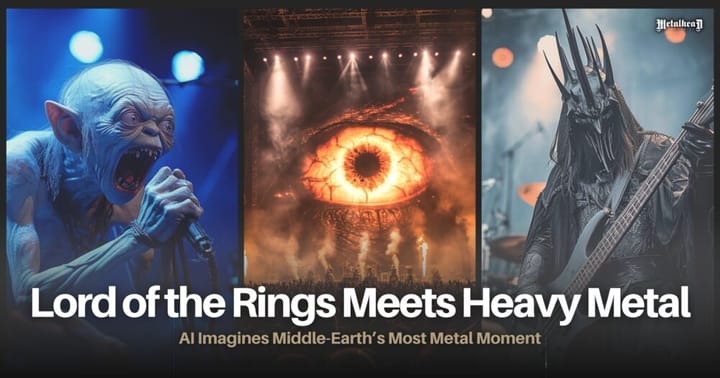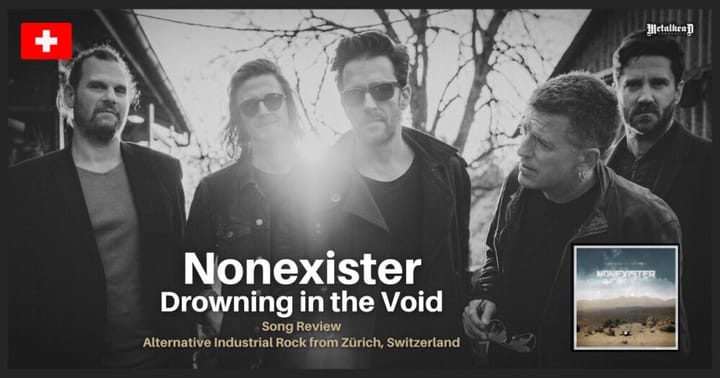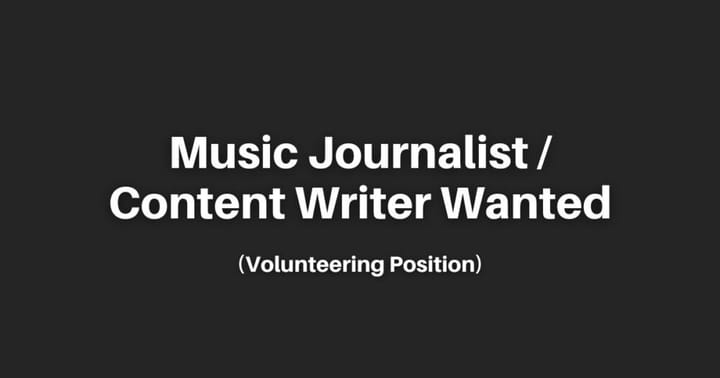The Real Reward is Impacting Listeners with Your Creation, According to American Prog-Rock Artist, Jason Halogen
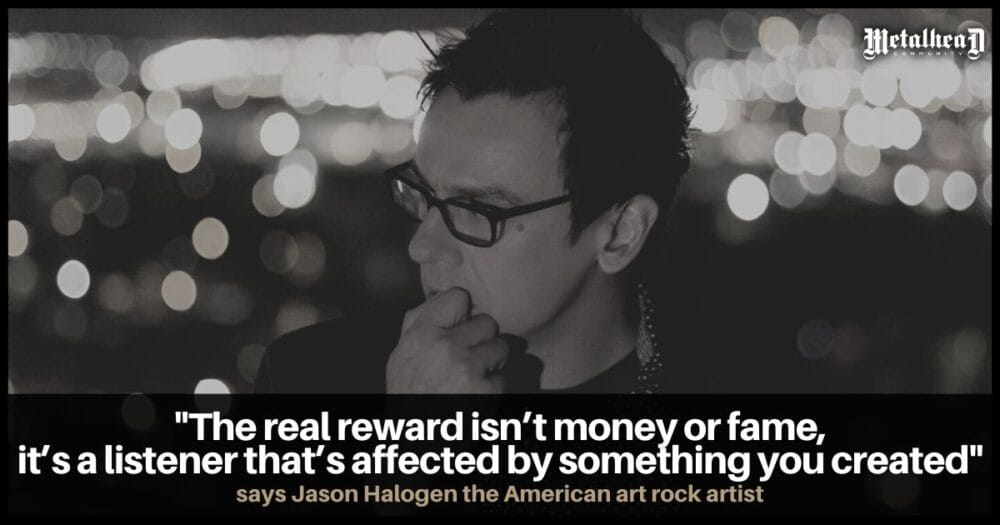
Today, we are together with a promising composer, multi-instrumentalist, vocalist, and producer Jason Halogen, from Los Angeles, who told about his personal life, music project, influences, future plans, and the music industry.
Jason Halogen – Ruxpin In the Attic (Official Video)
Q1 - How would you describe a regular day for Jason Halogen? What is the percentage of making music in your daily life?
A1 - Not as much as I’d like, what with the “real job”, but I’m incredibly lucky to actually like my job, so I try not to complain. There’s always a melody in my head, whether it’s mine, someone else’s, or something I think is mine but then whoops, it’s that Monkees song again. On a regular day, I’ll do some editing or production work, head into the real job, and hit the studio again when I get home. If I’m lucky, inspiration strikes. If not, I just play or record anyway because you never know. In a perfect world we’d all have millions of dollars and just live the dream, but come on. This is late-stage capitalism. You do what you can.
Q2 - What can you tell us about the story behind your first studio album Disasterpiece Theatre? What were the main influences, inputs in this album?
A2 - I started working on the oldest songs when I moved to LA, and just kept building it while trying to sort out life on the west coast after a life in New England, which was a rough but amazing transition. While I was trying to find my place out here I started honing ideas and writing more seriously, not knowing what would come of it but knowing I’d eventually have a record, whether I was on my own or in a band, and with or without support. I just kept pushing.
Lyrically, my songs are influenced by the state of the world, love, loss, and the resilience of the human race in a world where everything gets judged in dollars. This world is weird, and to be brutally honest I see the world through the lens of depression, like a lot of people do. Writing is how I address my demons, so yeah, I can get dark.
Musically, I’m influenced by two camps: One, the people who have massive soundscapes that take you to a different place, like Pink Floyd, Yes, The Verve, Peter Gabriel, Depeche Mode, Radiohead, and a modern artists like The National who really know how to channel an atmosphere and get it on tape. The other side is artists who just nailed the concept of the concise, simple, perfect song. The Beatles, Tom Petty, Blur, Oasis, Nada Surf, Frank Turner, Kasabian, U2, The War On Drugs, The Weeknd… really, anyone with a killer melody and a decent story.
Q3 - Where did you record the album? Who produced it? What was the most challenging thing in the process?
A3 - Me, in my studio. I had a few fantastic drummers join in - Mark McGettrick, Brandon Erdos, Chris Hannaford and Taylor Barefoot, who also handed me a fantastic guitar lead on Leave Me Low - but the rest was all me. I love collaborating and playing in bands, but this first solo record needed to be what it is. One of my songwriter friends described it as a “direct shot of Jason right into my veins”, and for better or worse I think that’s what it had to be.
Because of that, though, the most challenging part of the process was just getting over myself. No co-writers, no label or management telling me that a song could or couldn’t land a placement, just me in my own head, in the studio, making what I wanted to make, with all the self-doubt and second-guessing that entails.
Q4 - How is the feedback so far since the release?
A4 - The people who have heard it have loved it, but of course the hard part is getting people to hear it. With Spotify being what it is and the record industry in splinters, the real reward that you get isn’t often money or fame, it’s a listener that’s affected by something you created. Over the years I’ve gotten messages like “your record helped me through my divorce” or “my seven year old son is playing guitar because of you” and those things are forever precious and important. Whether they like to admit it or not, every artist wants their output to connect to a human heart. One of the reviews the record managed to get said “there is truly something for everyone on this album”, and I hope that’s true.
Q5 - If you'd get the chance to play your music for Mike Portnoy, which song would be the first? Are there any songs you wouldn’t play? And why?
A5 - Whoa, Mike Portnoy? I guess I’d play him “Ruxpin In The Attic”, since we’re both Marillion fans and I’ve got some straight-up Rothery impressions in there. I’d also want him to hear “Don’t Mind Me”, which is me on live drums, just to hear what he thought of my drumming. I could guess at songs he might not want to hear, but honestly I don’t know the guy, so what do I know? Whatever he thought of the record, I’d definitely ask him to play drums for me.
The real reward isn’t money or fame, it’s a listener that’s affected by something you created, says Jason Halogen the American art rock artist

Jason Halogen - Artist Photo
Q6 – How would you rate Disasterpiece Theatre album sound in terms of sound/production quality between 1 to 10? And why?
A6 – I nailed it! Haha. No, I mean, I think it sounds great, but I made it myself so I’m a little bit biased. Pretending to be objective, I’d give it an 8? Maybe an 8.5. I brought in my friend Phillip Jordan at the end to tweak the mixes, and then had the brilliant Hans Dekline master the record, and HE definitely nailed it. But I’ll always want it to be bigger, more beautiful, etc. and I’ll always hear things I could have done better. I think it’s really good, and after spending hundreds of hours making it, that’s a big win in itself.
Q7 - What was the image of yourself in the future when you first started your professional music career? In a special collective of individuals, a full band where everybody's contributing, or a solo project with session musicians?
A7 - Definitely the collective! A great lineup of folks in a band becomes a family, and for years and years my bandmates were my best friends, my brothers and sisters. The best cure for the self-doubt that I was talking about before is to have a bunch of great people with you, encouraging your songs, making them better in ways you wouldn’t think of, and playing big loud shows with you. Bands are great. Everyone should join a band. If you’re reading this, go join a band.
Q8 - What is the ultimate objective of Jason Halogen as an artist? Where would you like to see yourself in the end?
A8 - Well, obviously, being a multi-millionaire rock god with legions of fans, but let’s be real. My goal is to always be making music and having it mean something. Money would be nice but it can’t mean everything, or you wind up chasing trends and your own creative voice can’t come out. So basically I hope that years from now, I’m still composing soundtracks, playing live, making music that I enjoy, and that other people feel a connection to it. That’d make it all worthwhile.
Q9 - What can you tell us about your 2022 plans? Are we going to see Jason Halogen performing live?
A9 - Definitely. I’ve already got a show booked in February (2022), which will be a multimedia, show like the livestreams that I’ve done. Over the pandemic I taught myself some video editing programs and created films of other versions of me playing the other instruments, mixed with some cool effects and backgrounds, so for now it’s me with a guitar and my army of psychedelic virtual Jasons on a projection screen. We’ll see about a band later. I’d love to do it but most LA players are paying their bills with their music, and paying for a band is a little out of my reach. Regardless, though, yes. Jason Halogen will be performing live, and doing more streaming shows. I’m not going anywhere, although Covid hopefully will.
Q10 - Why do you think indie artists and bands usually don't get their investments back? Is it impossible?
A10 - Ha! Well, if you want to make a million dollars playing music, start with ten million, right? Piercing through a saturated market like this is hard enough, and with 300 Spotify plays earning you one dollar? It’s definitely a money pit for almost everyone. If you’re well-connected and/or wealthy, like if your parents are famous, your chances at “success” are infinitely better, especially given the ability to pay for producers, co-writers, studio time, promotion, and even the freedom you’ll have to develop your craft without worrying about paying next month’s rent. If you don’t have that, it’s a long, slow uphill climb with tons of disappointment, and it’s super easy to lose heart and give up. I’ve nearly given up countless times, and I’m sure some people thought I should. There are exceptions, though. There will always be people who break through the system. So there’s some hope.
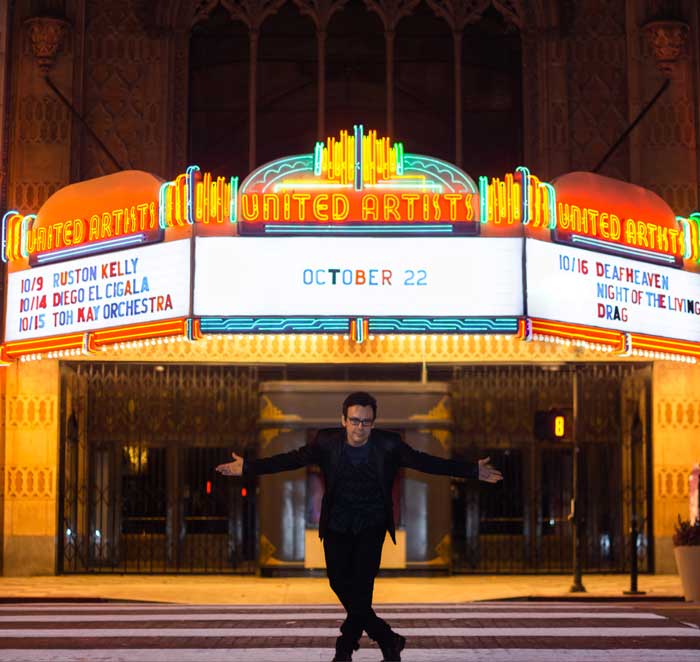
Jason Halogen - Disasterpiece Theatre Album Press Photo
Q11 - Do you believe up-and-coming bands have a better chance than before? How do you think the high number of artists and bands out there making releases affects the music industry?
A11 - Up-and-coming bands have unprecedented power when it comes to the ability to record and produce music and get it out there, but naturally that means that the competition for even four minutes of someone’s listening time is insane. Because of that, there’s a whole industry chock full of scams and bad actors promising every musician thousands of “fans”, and even legitimate promotional companies have an uphill battle pushing new music. So again, it comes down to money, and this is awful for most musicians. We’re almost always financially struggling, and for every move you make there’s a dozen people trying to capitalize on your desire to be heard. For example, when Facebook first started up you could pitch an event to all of your “friends” and they’d hear about it, now their algorithms suppress events unless you pay for promotion. It’s like that everywhere. So, it’s definitely easier to make music, but infinitely harder to find an audience.
Q12 - What makes a band "great", and what was the first band who taught you something? What did you learn?
A12 – For me what makes a band great is having a voice, being proud of it, and putting it all out there for whoever wants to listen. A great band doesn’t have to be famous; actually, most of the bands that I’ve considered great never were. But the first band that taught me something? Probably Def Leppard when I was a kid, picking up a guitar for the first time. They taught me perseverance, how to really go for it, and that playing guitar is just fucking awesome.
Q13 - What would be your piece of advice for someone who wants to form up a band and start a career in music?
A13 – Despite everything I’ve said about how hard it is to succeed, do it. Do it, and do it now. It’s a blast. Grab an instrument and practice it until you don’t suck, and don’t get down on yourself when you suck at first. If you can afford lessons, get lessons. If you keep at it, and practice and really listen to the music you love, you’ll get somewhere. Then find a bunch of people who like the same stuff you do and go make some noise. I wish you the best of luck, but enjoy every second of it regardless of success, because it’s magic. You’re making something new out of nothing.
Q14 - Top 5 albums influenced "Jason Halogen - Disasterpiece Theatre" album?
A14 -
The Boxer Rebellion - Promises
Nada Surf - The Weight Is a Gift
Peter Gabriel - US
Marillion - Marbles
Stereophonics - Keep The Village Alive
Q14 - Lastly, what would you like to say to our readers?
A14 - Well, firstly that it’s an honor to be recognized by Metalhead Community when I’m obviously not a metal musician, and it just proves that you can’t judge a book by its cover, and that’s awesome. So, thank you. And to the readers I’ll say stay healthy, try to find happiness, and I hope you enjoy the hell out of this record that I made. You can hear it and see a bunch of video at iamjasonhalogen.com, and hey, every 300 listens on Spotify earns an independent musician one whole American dollar, so let’s all set an indie album on repeat and then go on vacation or something. Ready? Go.
The real reward isn’t money or fame, it’s a listener that’s affected by something you created, says Jason Halogen the American art rock artist
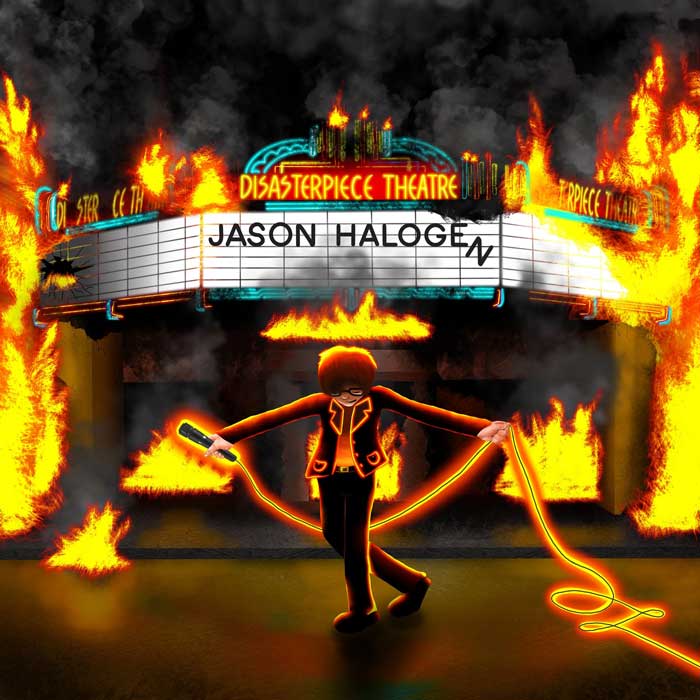
Jason Halogen - Disasterpiece Theatre - Album Front Cover Image
Listen to Jason Halogen on Spotify
JASON HALOGEN on the WEB
Official Website
Facebook
Instagram
Spotify
The real reward isn’t money or fame, it’s a listener that’s affected by something you created, says Jason Halogen the American art rock artist
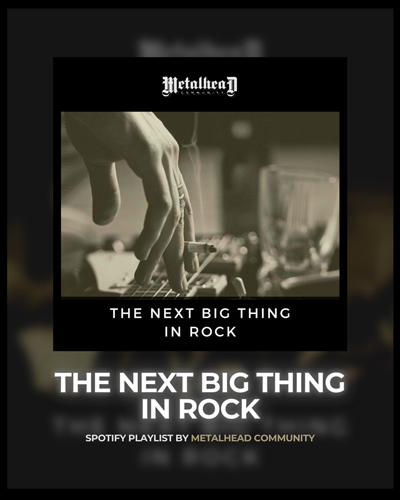
Listen to Metalhead Community's The Next Big Thing In Rock Playlist on Spotify

